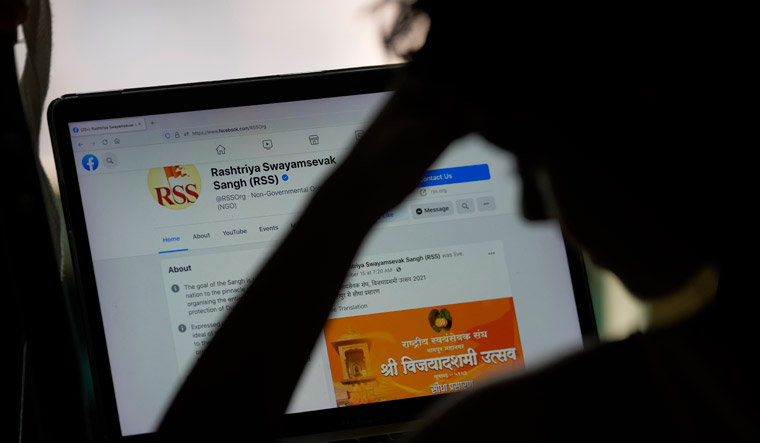Facebook has been facing criticism over the years for its alleged tardiness in combating widespread disinformation and extremist information on the platform.
One country where these criticisms have frequently been raised is its largest market: India. Last year, a senior Facebook executive based in India, Ankhi Das, stepped down after reports claimed she allegedly blocked action against leaders associated with the BJP and other Hindutva groups.
On Saturday, a number of international media outlets, including the Associated Press, The New York Times and The Wall Street Journal reported about Facebook's practices on India.
The reports were based on disclosures to the Securities and Exchange Commission and the US Congress by Frances Haugen, a former Facebook employee-turned-whistleblower.
The disclosures referred to internal memos by Facebook employees that exposed how Facebook's own "algorithms or default settings" played a part in spurring malcontent. This included automated recommendations of groups "inundated with fake news, anti-Pakistan rhetoric and Islamophobic content", Associated Press reported.
The disclosures cited a Facebook report titled Adversarial Harmful Networks: India Case Study. This study claimed that " much of the content posted by users, groups and pages from the Hindu nationalist Rashtriya Swayamsevak Sangh group, or RSS, is never flagged", The Wall Street Journal reported.
"Researchers also found pro-RSS users on Facebook were posting a high volume of content about 'Love Jihad', a conspiracy theory that is spreading online and has gained traction in recent years," The Wall Street Journal added.
However, the study noted, "Facebook hasn’t designated the RSS for removal 'given political sensitivities'," The Wall Street Journal reported. The New York Times reported these political sensitivities were related to worries about its operations in the country.
The Wall Street Journal also cited disclosures that claimed Facebook had hesitated to act against the Bajrang Dal despite allegations the group had used WhatsApp to "organise and incite violence".
The disclosures claimed Facebook was unable to flag hate content published in Hindi and Bengali due to lack of "sufficient technical systems".
A Facebook spokesperson told The Wall Street Journal the company "has technical systems in place to catch offending material in five languages spoken in India, including Hindi and Bengali, and has human language expertise in many more languages. He said the company continues to work to improve its systems".
An RSS spokesperson told The Wall Street Journal Facebook was free to approach the outfit at any time about its activities, but had not done so.




